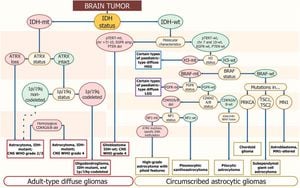Nigeria has officially joined BRICS, marking its position as the ninth partner country to this prominent interstate organization. The inclusion of Nigeria, the largest economy on the African continent and sixth most populous nation globally, heralds the country's ambitions for increased cooperation with BRICS members on pivotal issues such as trade, investment, and climate change.
According to the BRICS presidency from Brazil, Nigeria's membership stems from its convergent interests with the existing members of BRICS. With its large population and significant economy, Nigeria aims to leverage this partnership to drive national development objectives. A statement emphasized, "With the world’s sixth-largest population – and Africa’s largest – as well as being one of the continent’s major economies, Nigeria shares convergent interests with other members of BRICS."
Chinese foreign ministry spokesperson Mao Ning welcomed Nigeria's inclusion, viewing it as beneficial to both Nigeria’s development and the broader goals of BRICS and its partners. Mao stated during a press briefing, "Nigeria is a major developing country and a significant country of the Global South... The inclusion of Nigeria will not only serve its development but contribute to the common interests of the bloc’s members and partners." This view is integral as it showcases the strategic importance of Nigeria within the BRICS framework.
Nigeria joins other recently appointed partner nations, including Belarus, Bolivia, Kazakhstan, Cuba, Malaysia, Thailand, Uganda, and Uzbekistan. This membership category, established at the 16th BRICS Summit, permits these countries to partake actively without enjoying the full privileges of membership. Their status as partners allows them to engage meaningfully in summits and thematic meetings.
Under Brazil’s presidency, which began at the turn of the new year, there is anticipation of stronger South-South cooperation and efforts to address global governance reform, issues pivotal for the bloc. The inaugural move for 2025 came with Nigeria's partnership announcement, reflecting the growing influence of BRICS as it looks to solidify its role on the global stage.
The strategic import of this expansion cannot be overstated. With approximately forty-seven percent of the world's population now represented by BRICS members, the bloc stands to gain significant sway over international financial institutions and multilateral discussions. BRICS is positioning itself as not just a collective of major economies but as a formidable voice for the Global South.
While Nigeria has secured its place, other nations are still evaluating potential membership. Saudi Arabia, for example, has not yet finalized its decision about joining BRICS, with Economy Minister Faisal bin Fadhil Al-Ibrahim stating, “We assess many different aspects of it before a decision is made...” This cautious approach reflects the kingdom's broader strategy as it seeks partnerships globally.
The previous expansion of BRICS, which included invites extended to countries such as Saudi Arabia, Egypt, the United Arab Emirates, Ethiopia, and Iran, indicated strong interest and raised expectations around strengthening ties within the Global South.
For Nigeria, the benefits of joining BRICS extend beyond economic collaborations. The country’s participation is expected to facilitate resources sharing and knowledge transfer across fields such as energy security, technology, infrastructure development, and climate initiatives, aligned with global sustainability goals.
Reflecting on these developments, analysts note the potential for Nigeria’s involvement to act as a catalyst for more innovative approaches to tackling global challenges. The partnership opens avenues for Nigeria to advocate effectively for its interests within the international community and to play a more active role on the world stage.
Analysts from across the spectrum assert the rise of BRICS and the inclusion of countries like Nigeria demonstrates the shift toward multipolarity, where traditionally dominant Western powers are increasingly challenged by the aspirations of the Global South. The acceptance of lower-income countries with booming logistics and resources indicates BRICS’ commitment to being more inclusive, fostering dialogue, and advancing collective goals.
With key discussions on future directions planned during upcoming summits, particularly the anticipated meetings later this year, the stage is set for BRICS to possibly redefine not only its own goals but the contours of global economic and political relationships.
The newly established partnerships within BRICS signal significant changes for international cooperation frameworks, promoting shared growth models and diversified economic strategies across its members and partners. These developments hint at the potential for even more extensive collaborations to emerge as other nations gauge their interest and readiness to join this dynamic coalition.
Moving forward, it remains to be seen how effectively Nigeria will integrate within BRICS frameworks, leveraging its immense natural resources and supporting regional partnerships. The coming years will likely reveal new pathways of development under the BRICS umbrella, shaping the relationship dynamics between member countries.
Through this strategic alignment, Nigeria affirms its readiness to navigate the global economic terrain, positioning itself alongside other growing economies committed to sustainable and equitable growth.



